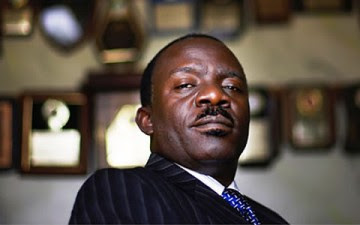Human rights lawyer, Mr. Femi Falana (SAN), has said that the Supreme Court was wrong in quashing the conviction of a former Chairman of the board of Nigerian Ports Authority, Chief Olabode George and five former members.
Falana, in a release on Sunday, said the judgment of the Supreme Court was “highly erroneous,” insisting that “it was based on wrong legal foundation.”
The Supreme Court on December 13 set aside the judgment of Justice Olubunmi Oyewole of the Lagos High Court, who jailed George and others.
The judgment of the Lagos High Court had earlier been affirmed by the Court of Appeal in Lagos before the apex court reversed it on December 13.
The apex court in its judgment quashed the conviction on the grounds that the offence of contract splitting which they were found guilty of by the trial court was unknown to the law at the time the judgment was handed down.
But the rights lawyer, who maintained that the validity of the Supreme Court’s judgment “remains questionable,” said George and others were not convicted for contract splitting but for “abuse of powers” and “disobedience of lawful order”.
He added that his criticism of the Supreme Court judgment would not amount to contempt even as he cited previous pronouncements of the apex court “which always welcomed a constructive criticism of its decisions.”
He said, “It is submitted, without any fear of contradiction, that the appellants were not charged for contract splitting by the Economic and Financial Crimes Commission but for “abuse of powers” and “disobedience of lawful order” contrary to sections 104 and 203 of the Criminal Code of Lagos State respectively.
“In summarising the unassailable judgment of the learned trial judge, Clara Ogunbiyi JCA (as she then was) had, in her lead judgment, said that the appellants were arraigned “on 68 counts of offences bordering on inflation of contracts, conspiracy to disobey lawful orders and abuse of office…”
“Since both sections 104 and 203 have been part of the Criminal Code as far back as 1914, it is unbelievable that the Supreme Court held that the appellants were charged under an unknown law. The crime of disobedience to lawful order by splitting contracts was not unknown before the enactment of the Public Procurement Act, 2007.”
Falana also described as embarrassing aspect of the judgment where the Supreme Court annulled two provisions of the Criminal Code of Lagos “without hearing from the Attorney-General of Lagos State in line with established practice.”
“With profound respect to their lordships, there is no legal justification whatsoever for declaring sections 104 and 203 of the Criminal Code illegal and unconstitutional,” he said.
He expressed the hope that the Supreme Court would “soon have another opportunity to reverse the highly erroneous judgment so as to restore sections 104 and 203 of the Lagos State Criminal Code which were struck down for no justifiable legal reason

 Hottestgistnaija.com
Hottestgistnaija.com



